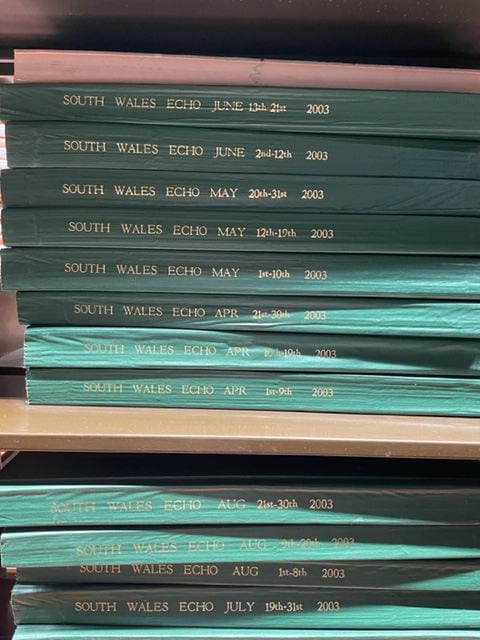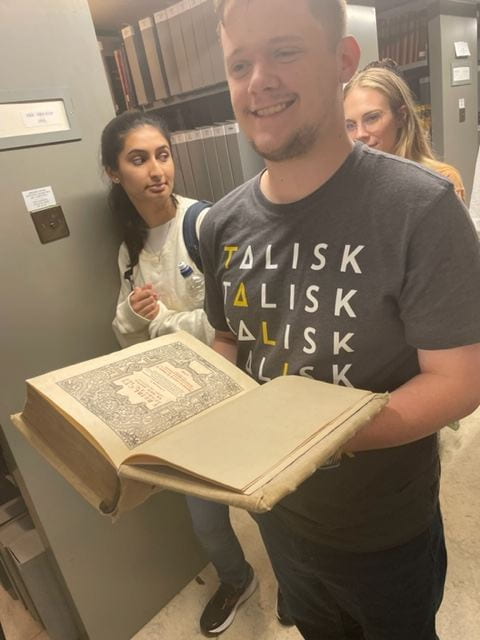Greetings from Aberystwyth, Wales, a quaint university town by the Irish sea. A change of pace from the hustle and bustle of London, colorful houses dot the mountains and small shops line the promenade. Housed on-campus we are able to immerse ourselves within the culture of this college town, not dissimilar in the atmosphere to that of UAB. Our day begins with a couple of lectures by Aberystwyth University faculty. Our first presenter was Dr. Rhys Thatcher. Here science and history intersect as we are transported back in time to our evolutionary beginnings and its continued influence on our biological functioning. Dr. Thatcher stressed several times during his presentation that inactivity is a main contributor to many chronic diseases. Demonizing obesity and advocating for weight reduction, our current diet, and health culture seems to miss the mark in the prevention of chronic disease implying causation where correlation is present. Undervaluing physical activity as a society, Dr. Thatcher remarked we would often be better served to “take our pill for a walk instead of swallowing it”.
With the highest prevalence of diabetes in the United Kingdom at around 8% of the population, Wales still pales in comparison to the United States where 13% of its inhabitants are currently diagnosed. Despite our advancements in healthcare, we have been unable to influence the age in which people develop chronic illnesses. We are simply just keeping people alive longer. This represents a continued conundrum as the global population increases and healthcare costs continue to rise.
Our second lecture of the morning presented by Dr. Rachel Rahman discussed the use of telehealth in Wales. Many are still dealing with the aftermath of COVID, yet the one greatest advancement in healthcare during this time has been the expansion of telehealth. Being able to video conference with a practitioner for mental health or general medication refills without having to leave the comforts of your own home opens the doors to health access to many. Wales, a primarily rural community, has seen exceptional benefits to health access and patient engagement. This has also been noted within our own population back home in Alabama.
The Welsh deal with many of the same barriers as Alabamians when it comes to finding healthcare in rural areas. Long drives to dentists, specialists, birthing care, and even just general practitioners can lead to decreased wellness and overall satisfaction with the healthcare system. However, with universal access to general services through the NHS, the Welsh continue to have a leg up on Americans, where financial barriers continue to hamper access to basic care services. The successful uptake and satisfaction with telehealth services present many opportunities to address health inequality and impact the social determinants of health.
To finish off our first full day in Aberystwyth, we strolled down the winding university walkways to the National Library of Wales. Housing a plethora of irreplaceable and one-of-a-kind artifacts, we were led on a behind-the-scenes tour that many locals of Wales themselves have not experienced. Upon arrival, we were greeted by our friendly local guide, Dyfan Graves, who presented and discussed the library’s history and the contents of its many shelves and humidity-controlled rooms. Walking through private “staff only” corridors we encountered meters upon meters of tall shelving with stacks and stacks of ancient or important books, maps, art, or other precious artifacts important to Wales. We entered a climate-controlled room with CO2 fire suppression systems that hold items such as the early 15th Century manuscript of Chaucer’s Canterbury Tales. Our guide allowed us to hold one of the oldest Welsh bibles (1588) in existence. This bible predates the King James Version and it is felt that this work played a key role in the preservation of the Welsh language.
Journeying upwards on a spiral staircase, we continued our culturally rich journey to an immense art gallery containing historical and recent image depictions. Poignant and humbling photos illustrating the realities of healthcare workers and patients during the COVID-19 pandemic can be viewed on its walls. Displaying the powerful emotions of stress and solidarity during this unprecedented time, this art brings us back to the importance of population health in a unique and visceral way. Often individuals don’t recognize that healthcare professionals walk away from many of their experiences with a variety of feelings that over time can lead to professional burn-out, compassion fatigue, and depression.

To close out this culturally immersive experience we learned about the unique connection between Wales and Birmingham, Alabama. Going back in time to the deep south, on September 15, 1963, in the midst of segregation, the 16th Street Baptist Church was bombed in Birmingham, Alabama. The bomb exploded before Sunday morning services at the predominately African American church that served as a gathering place for many civil rights activists. Claiming the lives of four little black girls and injuring a multitude of other people, this tragic event captured the attention of Wales. In a display of friendship and solidarity, Wales commissioned a Welsh artist by the name of John Petts to design a stained glass window to be displayed in the church upon its restoration. His final illustration is that of an African American Christ with the right hand pushing away hatred and injustice and the left offering forgiveness with an overarching rainbow representing diversity. Petts accompanied the image with the words “You do it to me”, based on a verse from Mathew 25:40 that spelled out the Christian message of brotherly love: “Truly, I say to you, as you did it to one of the least of these my brothers, you did it to me”. It remains in the church to this day, a forever memorial to 14-year-old Addie Mae Collins, Cynthia Wesley, Carole Robertson, and 11-year-old Denise McNair whose bodies were found beneath the rubble in a basement restroom.
Our first day in Aberystwyth was an intense learning and cultural experience. Understanding the significance of what makes people unique is imperative to provide appropriate services to improve both wellness and wellbeing within this community. Much like in the United States, culture can vary greatly from one region to another and you must take care not to group everyone within one homogeneous unit. Thoroughly enjoying this immersive experience we cannot wait to see what tomorrow will hold and what more we will gain from this collaborative experience.





